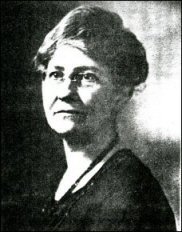|
 |
|
 |
Wednesday, August 11, 1948
And so, when our venturesome forefathers came into St. Lawrence County from Vermont and New Hampshire, they not only had to endure great deprivations of comforts and conveniences, loneliness and constant drudgery, but they were in constant danger of death from attacks of wolves or wildcats. There must have been unimaginable quantities of deer, but these furnished them with food. Numbers were killed, however, for the pleasure derived from killing helpless wild things. Parishville, Hopkinton and Stockholm especially abounded in wolves. The Risdon dairies, published by the late Carlton Sanford of Potsdam, have constant accounts of depredations by those fierce and blood loving creatures.
On Dec. 22, 1837, he made this entry: "Yesterday the people were hunting wolves. To-day several are after the hunters, who, it is said, have their feet and fingers frozen. They are hunting five miles south of here. The wolf is caught. It is said that the wolf that was killed yesterday had destroyed 50 sheep lately."
On the 26th his entry reads: "It is said that one of the wolf hunters will have to have his leg amputated." Risdon made many entries regarding the killings of wolves in their flocks. One tells of his attempt to increase his flock, only to have them exterminated. In many cases only the blood seemed to be the desirable part of the carcass, the latter being mangled but not much flesh consumed. At any rate, these fierce brutes were a menace and a danger to the pioneers, and in the earliest days they feared to go from home to home, at night especially, without some means of protection from them.
Risdon wrote of the most noted hunter of those days, "Animals killed by Thomas Meacham: Wolves, 214; panthers, 77; bears, 210; deer, 2,550." His traps were always out and one day in examining them he found two wolves and a bear and shot another on the way. His bounty for these was $185. He died in 1849, so that many wild animals were hereabouts at that time.
Many small fur-bearing animals also abounded and most men trapped all the time. Foxes, raccoons, otters, muskrats, mink, rabbits, squirrels and woodchucks were so numerous as to be pests, but with the incessant hunting, trapping and the absence of any restrictions, it is a miracle that any survived to perpetuate the species. They report the occasional wildcat and even wolves in the Adirondack foothills at the present time, and quite a good many bounties have been paid as they destroyed domestic beasts as well as young deer. Perhaps we shall revert to the wilderness again in another 50 years but with reforesting and abandonment of the back regions by humans.
I have quoted so much from Elisha Risdon's fascinating diary that I am giving finally his own record as a hunter, which was not likely very much more than many other pioneer men in those long ago days when men and women performed stupendous tasks in preparing this and neighboring towns for our own occupation in comparative ease and complete safety.
Let us be grateful to them, for their labors were truly gigantic, and their endurance and courage unparalleled. "The first deer I ever killed was in 1800 at the Genesee. 1804, two in Hopkinton. 1805, with a rifle bought of Eli Squire. 1807, one." And so on down to 1833, telling each year how many and with what gun. Among other guns he had one he bought of "Mr. Foster, the gunsmith at Parishville." In the year 1815 he killed 50 deer and one wolf. He recorded that he killed 66 deer with the gun he bought of Mr. Foster of Parishville. Altogether Mr. Risdon caused the death of 579 deer and one wolf between 1800 and 1833. Many hunters down to the middle of the century probably had as good or better records so that when the State woke up to the fact that animals were being exterminated, the conservation law stepped in and halted the slaughter. However, Mr. Risdon and his neighbors did their killing from a real necessity and for the safety of themselves and their flocks and herds. Fish, fowl and venison formed the staple meat diets, while corn, beans, and potatoes satisfied their needs along the other vitamin lines.
Later the whole wheat and other grains met all their needs in the nourishing of their bodies. I believe their greater death recorded in vital statistics were from those diseases of which they had not learned the cause, and their ignorance of hygiene and communicable ailments rather than a poor diet. To science, we are indebted now for our longer span of life compared to theirs, and to inventions for the eliminations of insect and other forms of life which menaced babies, children and their parents 100 years ago. It is now known just what disgusting enemies flies, rats, lice and some worms are of us human beings who, in times past, were the ignorant prey of the wretched creatures swarming in houses and barns, waiting to infect the victims who perished by hundreds of plagues and fevers.
Most of those terrors are conquered, but many still await us, being studied in experimental hospitals. Your great-grandparents' days were not devoid of beauty or pleasure, but they were hourly threatened by wild animals, typhoid fever, diphtheria, smallpox and consumption. Your child may be made safe, if you believe so, and in time let us pray that those sufferings, now the fate of many may, too, yield to a great illumination as to their eradication.
|